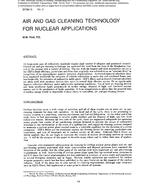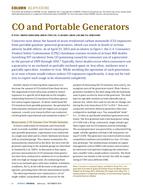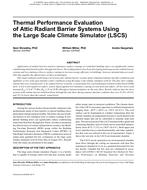This paper discusses the impact of ambient temperature on electrical end-use loads in commercial buildings. The results are based on an analysis of two all-electric buildings in Seattle with one full year of monitored data. The discussion focuses on basic properties of the temperature dependence that may arise in any building. A robust scatter plot smoothing technique is used to study the nature of the temperature dependency. In these two buildings the temperature dependence of electrical loads tends to be:
- — Well defined,
— Nonlinear,
— Restricted to thermal loads, and
— The primary source of seasonal variation.
The nonlinearity results from operation at equipment maximum capacity, manual operation of controls, multiple modes of operation, multiple types of equipment and nonlinear performance curves (eog. heat pumps). Indoor temperatures also show a strong relationship to ambient temperature.
Units: Dual
Citation: Symposium, ASHRAE Transactions, 1986, vol. 92, pt. 2B, Portland, OR
Product Details
- Published:
- 1986
- Number of Pages:
- 9
- File Size:
- 1 file , 970 KB
- Product Code(s):
- D-PO-86-07-2


